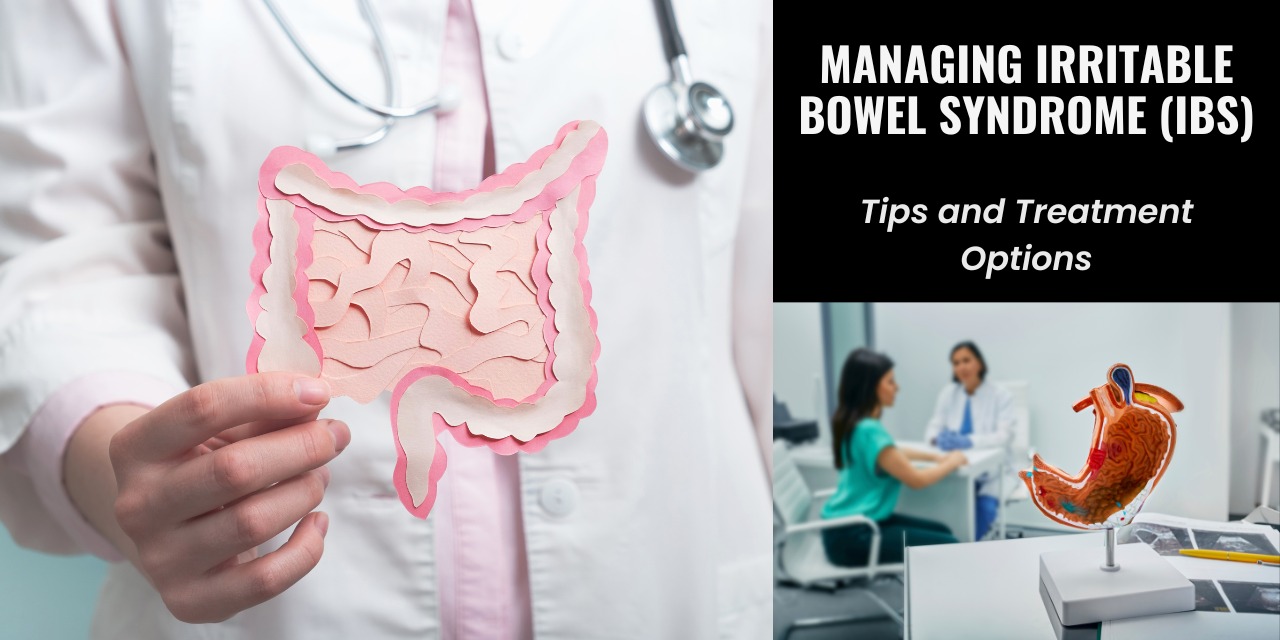Irritable Bowel Syndrome (IBS) is a common digestive disorder affecting millions of people worldwide. It can significantly impact daily life, causing symptoms such as abdominal pain, bloating, gas, diarrhea, and constipation. While the exact cause of IBS remains unknown, various factors like diet, stress, and gut bacteria imbalances are believed to play a role. Fortunately, several effective strategies can help manage IBS symptoms, improving your quality of life.
Diet and Lifestyle Changes
Identify Trigger Foods: Certain foods can exacerbate IBS symptoms. Common culprits include dairy, gluten, caffeine, and spicy foods. Keeping a food diary to track what you eat and how it affects your symptoms can help identify specific triggers.
Fiber Intake: Increasing fiber intake can help regulate bowel movements. Soluble fiber, found in foods like oats, bananas, and carrots, can be particularly beneficial. However, it’s important to increase fiber gradually to avoid bloating and gas.
Stay Hydrated: Drinking plenty of water is crucial for digestive health. Aim for at least 8 glasses a day to help keep your system running smoothly.
Regular Exercise: Physical activity can help reduce stress and stimulate normal contractions of the intestines, making it an effective way to manage IBS symptoms.
Stress Management
Stress is a significant factor in IBS flare-ups. Implementing stress-reducing techniques such as yoga, meditation, or even simple deep-breathing exercises can make a big difference. Finding hobbies that help you relax and maintaining a regular sleep schedule are also beneficial.
Medications and Supplements
Antispasmodics: These medications can help relieve abdominal pain and cramping by relaxing the muscles in the gut.
Laxatives and Antidiarrheals: Depending on whether you experience constipation or diarrhea, your doctor might recommend medications to help regulate your bowel movements.
Probiotics: These beneficial bacteria can help balance the gut microbiome, potentially reducing IBS symptoms. Probiotics are available in supplements and fermented foods like yogurt and sauerkraut.
Fiber Supplements: If you’re unable to get enough fiber through diet alone, supplements like psyllium husk can be helpful.
Seeking Professional Help
If lifestyle changes and over-the-counter solutions don’t alleviate your symptoms, it’s essential to consult a specialist. The best gastroenterology doctor in Jalandhar can provide a tailored treatment plan based on your specific needs. A gastroenterology specialist in Jalandhar can perform necessary tests to rule out other conditions and offer advanced treatment options.
Advanced Treatment Options
Cognitive Behavioral Therapy (CBT): This psychological approach can help manage the mental health aspects of IBS, particularly if stress and anxiety are significant triggers.
Dietary Counseling: Working with a dietitian who specializes in IBS can help create a meal plan that avoids triggers while ensuring you get the necessary nutrients.
Prescription Medications: In more severe cases, prescription medications like antidepressants or specialized IBS medications may be necessary.
Finding the Right Care
Managing IBS effectively often requires a combination of strategies and professional guidance. The best gastroenterology hospital in Jalandhar offers comprehensive care, including access to experienced doctors, state-of-the-art diagnostic tools, and personalized treatment plans. Seeking care at a renowned institution ensures that you receive the highest standard of treatment tailored to your condition.
Conclusion
Living with IBS can be challenging, but with the right strategies and professional support, you can effectively manage your symptoms and improve your quality of life. Implementing dietary changes, managing stress, staying hydrated, and seeking medical advice are key steps in managing IBS. If you need expert care, don’t hesitate to reach out to a gastroenterology specialist in Jalandhar for the best possible treatment and support.
For professional guidance, you can contact Dr. Alok Sehgal, MD, DM (SGPGI), Director & Chief Consultant. Visit www.pgijalandhar.in or call +91 87250 64663 for more information.

